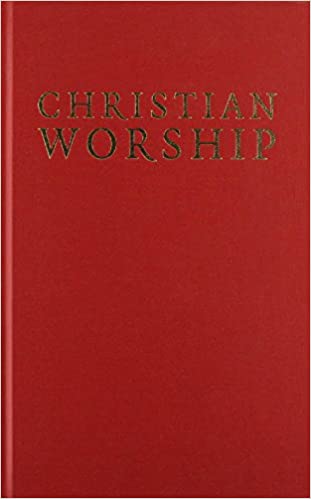The two volumes, words-only (coloured red) and music-only (green), both contain the same preface by the publishing committee and foreword by Vernon Higham. The aim is to provide a ‘traditional hymnbook in a contemporary form’ to serve ‘traditional evangelical churches’.
An idea of what is meant by ‘traditional evangelical churches’ can be obtained by viewing the five principles that governed the 8-man committee. The first was the inclusion of the complete Metrical psalter using not the modern Free Church of Scotland production or its equivalent but a very ‘lightly edited’ version of the 1650 Scottish edition.
Instead of being scattered throughout the book, these Psalms form the first 150 of the 1191 collection in the red book. The rest of the hymns are numbered from 151 upward thus encouraging Christians to see the metrical psalms as an integral part of the hymnbook.
A first line index to the entire collection contributes to this same end with the metrical psalms shown in italics. Along with the author/translator and biblical reference and allusion index, there is a useful subject index to the Psalms.
A second principle was to include scriptural paraphrases and sprinkle them among the other hymns under appropriate subject headings. There are over 70 in the index, but these include some of (although not all) the hymns based on psalms.
The three remaining principles are more controversial and witness to an even tighter evangelical tradition than already indicated. Only ‘traditional hymns’ are included. No explanation or examples are given of what the editors had in mind in their ban on ‘modern worship songs’. Another principle rejects anything authored from within the Charismatic Movement. While they admit that there are some ‘more traditional hymns’ from this quarter that ‘may prove to stand the test of time’, the editors are prepared to bypass these until the authors are dead.
There is one further principle, namely, ‘The retention of the second person singular, “Thee”, “Thou” and “Thine”’ in reference to God. This may be the real reason for the rejection of some modern authors who are not known Charismatics. Living authors such as Vernon Higham are included, but hymns by Margaret Clarkson are missing. Timothy Dudley-Smith’s ‘Tell out, my soul’ is included, but not his ‘Lord, for the years’.
Of the separate green book containing 1086 different tunes, with four-part harmony, nothing is said other than what we can draw from the blanket disapproval of the Charismatic Movement’s ‘multi-instrument, worldly-idiom music’.
In view of this, it is surprising to see the music of Beethoven, Mozart and Rossini included, together with numerous folk songs from around the world. Some of Sankey’s Sacred songs and solos, though disapproved of by the traditionalists of his day, find a place, but more modern tunes specially composed by Christians and suitable to sing to ‘traditional hymns’ have been ignored. On the other hand, the number of Welsh tunes is impressive!
The tunes are arranged according to metre in alphabetical order, beginning with short metre from Augustine to Zurich, and ending with the irregulars from Adeste Fideles to Will your anchor hold. There is an index of composers and arrangers and an alphabetical index of tunes. Because the words and tunes are in separate volumes, an index of appropriate tune numbers to fit each psalm and hymn number is supplied. An added bonus is an index giving the first line in alphabetical order of every psalm and hymn (including their number) with suggested tunes.
Giving different tunes to various sections of a single psalm has the disadvantage of perpetuating the tradition of only singing small portions of many of the psalms, thus losing the psalm’s unity (but perhaps not all the Psalms were originally intended to be sung).
The benefits of having a separate word and tune book are meagre compared with the disadvantages. It will be a nightmare for presenters or those accompanying the singing to contain two bulky books on the music stand. For those in the pew who wish to read the words and music together it will be an almost impossible task. The word book alone is cumbersome to handle.
Overall, this hymn book is not a very user-friendly production, but excellent as a collection of Christian verse for meditation.
Music edition £19.00 ISBN: 978-0-9564195-1-4



